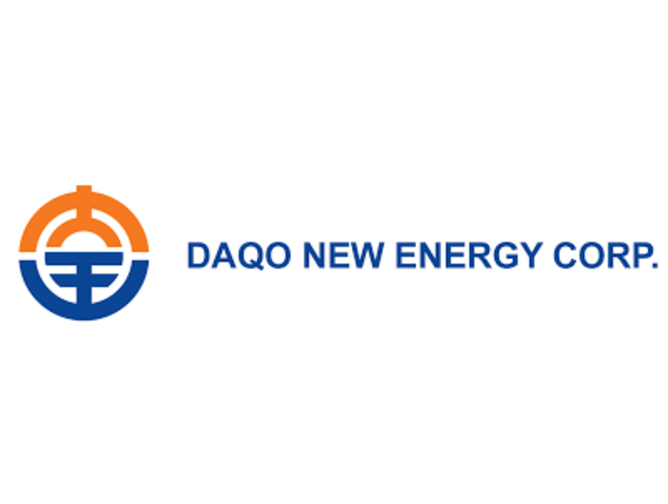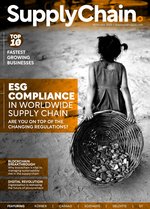Top 10 fastest growing businesses in 2023


Annual revenue increase: 12%
CEO: Timothy P Walbert
Horizon Therapeutics is a biopharmaceutical company focused on researching, developing, and commercialising medicines that address critical needs for people impacted by rare and rheumatic diseases.
It says that senior executives “meet frequently to plan, monitor and continually improve product supply, and that the company’s Supplier Review Board “periodically reviews the performance of all suppliers”.

Annual revenue increase: 25%
CEO: Jordan Wu
Himax is a semiconductor company, providing display imaging-processing technologies in China, Taiwan, the Philippines, Korea, Japan, Europe, and the United States. It is a so-called ‘fabless’ chipmaker, which means it produces semiconductors for use in various types of electronics, such as digital cameras, smartphones, and smart cars.
The company strives for a sustainable supply chain by having strict due diligence with suppliers to ensure that none of the minerals it uses in the manufacture of chips is sourced from the Democratic Republic of Congo, which has been riven with conflict in recent years.
The company has also committed to creating a supply-chain transparency system around this.

Annual revenue increase: 25%
CEO: Mac Armstrong
Palomar is a specialty insurance company focused on serving residential and commercial customers. It uses analytical expertise to focus on underserved areas, such as earthquake insurance.
Of its supply chain, it says: While the carbon and environmental footprint of Palomar might be smaller than larger corporations with extensive supply chains and manufacturing infrastructure, we believe every company, regardless of size or industry, should commit to responsible environmental stewardship and sustainability.”

Annual revenue increase: 32%
CEO: Jeff Howard
Atlanticus Holdings Corporation is a fintech company that targets the underserved consumer credit market through fintech and related services. Its tech-based solutions allow bank partners to integrate its paperless process and instant decisioning platform with the existing infrastructure of participating retailers and service providers.
The company says that “despite inflation, rising interest rates and supply chain interruptions” its products are “continuing to generate, attractive returns on assets that will support attractive returns on equity”, and that it “plans to pursue growth in this area”.

Annual revenue increase: 34%
CEO: Badri Kothandaraman
Enphase Energy is an energy technology company that designs, develops, manufactures and markets home energy solutions that manage energy generation, energy storage and communications.
It manufactures IQ batteries, which is an all-in-one AC-coupled storage system that helps households save on electricity consumption.
It continues to post strong revenue growth, due to the surge in demand for batteries, it has added extra capacity to its facilities in Mexico and India.

5. FLEX LNG
Annual revenue increase: 36%
CEO: Oystein M. Kalleklev
Flex LNG Fleet Management is focused on offering safe, reliable, and cost effective solutions for the LNG (liquefied natural gas) shipping industry.
At the supply source of the transportation chain, liquefaction is done at specialised liquefaction plants, known as ‘liquefaction trains’, where waste hydrocarbons and non-hydrocarbons are removed from the natural gas before cooling the natural gas to become liquid.
The LNG market size is currently US$74.60bn in 2023 and is expected to reach $103.41bn by 2028.

Annual revenue increase: 37%
CEO: Leaf Hua Li
Futu Holdings is an advanced fintech company upgrading the investing experience by offering fully digitalized financial services in multiple markets.
It offers market data, financial news, interactive social features, and investor education on its proprietary one-stop digital platforms, Futubull and moomoo.
Fintech companies such as Futu are streamlining payments through digital technology, making it easier and more cost-effective for businesses to manage their supply chains.

3. PennyMac Financial Services
Annual revenue increase: 40%
CEO: David A. Spector
PennyMac is an American residential mortgage company headquartered in California. Its core business is the production and servicing of US mortgage loans and the management of investments related to the US mortgage market. It was founded in 2008, during the subprime mortgage crisis.
Supply chain management in the financial sector involves managing cash and capital, and there are an increasing number of solutions here, including a tech-enabled service from KPMG and Taulia that helps customers transform their financial supply chain for savings, and to improve supplier relationships.

2. Advanced Micro Devices (AMD)
Annual revenue increase: 44%
CEO: Lisa Su
AMD is a semiconductor company, known for designing and developing computer processors and graphics technologies.
Keivan Keshvari, SVP Global Operations and Quality at AMD says of the company’s supply chain: “Our longstanding relationships with our supply chain partners enable us to create shared value for our customers, workers across our global supply chain and the communities in which we operate.
“We aim to support our suppliers in advancing supply chain resiliency, respect for human rights and environmental sustainability. We are a key part of an extensive global supply chain creating products to advance high-performance and adaptive computing that helps to enable the future.”

Annual revenue increase: 174.50%
CEO: Xiang Xu
Daqo is a Chinese company engaged in the manufacture of monocrystalline silicon (mono-Si) and polysilicon (poly-Si), primarily for use in solar photovoltaic systems. The company operates a mono-Si and poly-Si manufacturing facility located in Shihezi, Xinjiang Province, China.
Falling costs throughout the supply chain are finally making solar energy feasible on a wide scale and Daqo is well-positioned to consolidate as one of the lowest-cost producers in the world.
However, its low costs might not just be down to favourable market conditions; Dago is one of a number of Chinese businesses blacklisted by the US government for suspected use of Uyghur forced labour in its supply chain.







